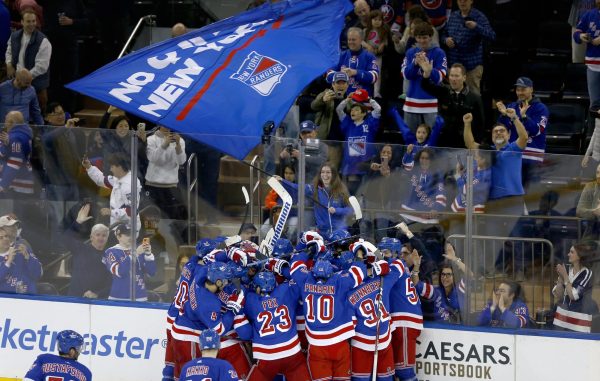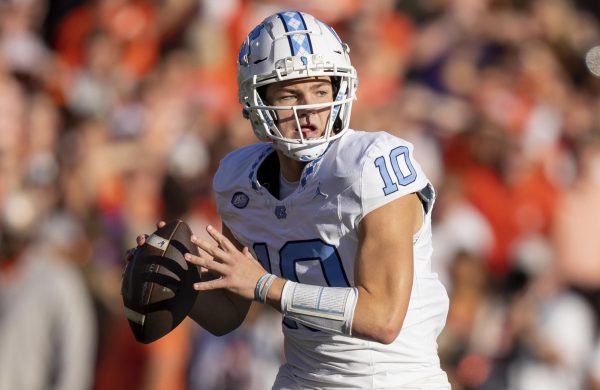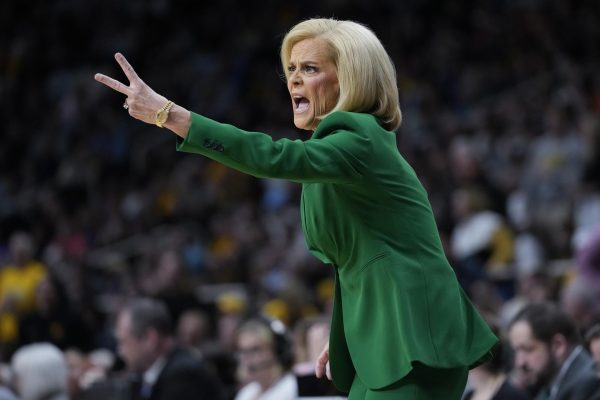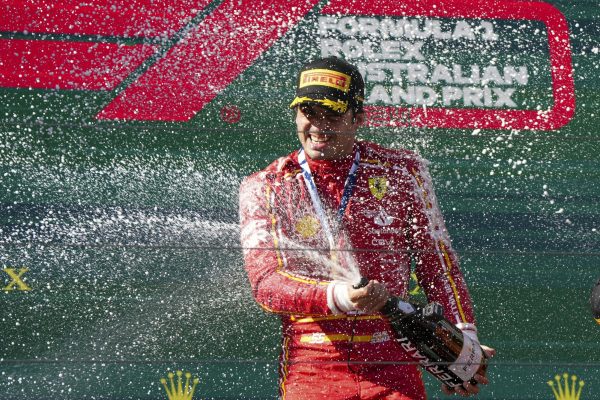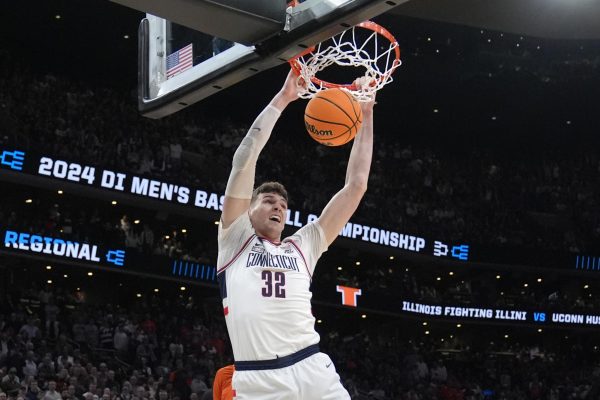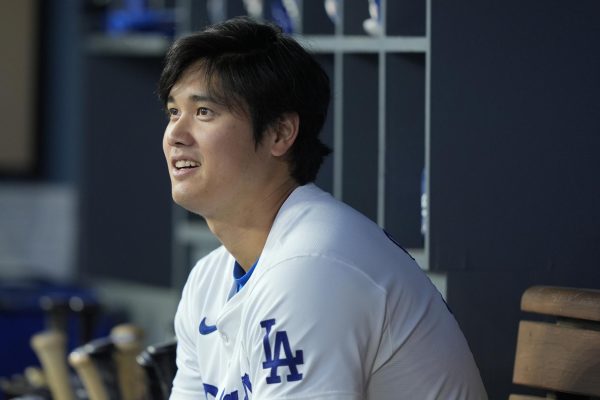NBA Trade Grades
About a week ago, February 24 at 3 p.m. ET to be exact, the NBA was shook up like a rack of Keystones being hauled up the backs stairs of a frat house. Hopefully, David Stern flicks the lid of each can enough for the league not to explode next year in a lockout, but before we start worrying about that, let’s evaluate the major moves being made across the wild West, post-LeBracle NBA at the deadline. This article won’t deal with the ‘Melo deal, as I’m sure you’ve heard nearly every opinion on it if you’ve watched any ESPN in the last two weeks. (If you’re interested, flip back to last week’s Maroon-News Around the Hill to read other staff and me sound off on whether the trade was worth it for the Knicks.) Also, I’m ignoring trades that did not affect playoff contender teams because I have a take-home test due Friday and only so many hours in a day.
Atlanta Hawks trade Mike Bibby, Jordan Crawford, Maurice Evans and a 2011 first-round draft pick to Washington for Kirk Hinrich and Hilton Armstrong: B-
The Atlanta Hawks finally have a semi-serviceable point guard to run an offense that has been plagued by one-on-one shot creation and isolation over the last several seasons. On top of that, Kirk Hinrich can actually defend some players in this league – unlike Mike Bibby, who had dropped even below Nash or Fisher status as worst defensive point guard. In fact, Hinrich is one of the better defensive guards in this league and defends everyone from point guards to small forwards, which will help as Atlanta’s defense is built on switching on picks. So, replacing Bibby with Hinrich is a major upgrade. However, the cost was steep in giving up a legitimate prospect in Jordan Crawford (a.k.a. “The guy who dunked on LeBron in high school”) as well as a first round pick in the upcoming daft.
Chicago Bulls trade James Johnson to Toronto for a first-round draft pick: B+
This is a fairly insignificant deal, but one that does free up some space for the Bulls and puts them in position to continue to build in the future. I would have liked to have seen them scoop up a better option at shooting guard. This deal does allow them to pursue free agents once they are bought out by their respective teams. Chicago would love Rip Hamilton, but his becoming available is looking increasingly unlikely. Rasual Butler is a possibility, but I predict his lack of commitment on D will not be tolerated by defensively-focused head coach Tom Thibodeau.
Utah Jazz trade Deron Williams to New Jersey for Derrick Favors, Devin Harris, two first-round draft picks and cash considerations: B+
For successfully avoiding a potentially impending “‘Melo Drama 2.0: Der-ama,” the Jazz deserve praise. I consider Williams a more valuable player than Anthony and the Jazz got what the Nuggets had wanted without all the torment and heartbreak. Devin Harris is a good enough point guard for now, and Derrick Favors is one of the top rookie prospects in the league. He provides some post-defense, something that Salt Lake City hasn’t seen a whole lot of of since… well, since Greg Ostertag, I guess. With Favors, Al Jefferson, Paul Millsap, Gordon Hayward, C.J Miles and Jeremy Evans, all whom are 26 or younger, the Jazz still have a bright future despite losing Williams and Carlos Boozer less than 365 days apart.
New Orleans Hornets trade Marcus Thornton and cash considerations to Sacramento for Carl Landry: C+
Again, this trade is not a huge deal considering the Hornets are only a fringe playoff team and Thornton and Landry are only role players. That being said, I consider Thornton to be the better piece both presently and in terms of upside. The Hornets killed his trade value by giving minutes to the likes of Marco Belinelli, Willie Green or Jarrett Jack over Thornton. He is a potential Jason Terry-type scorer. Instead of marketing Marcus as such, New Orleans took the first thing that came their way.
This was a panic move akin to some of the appeasement policies the Cavs took prior to LeBron’s departure. Desperately trying to find mediocre improvements to please a superstar threatening to leave does not work. Either cut your losses like Denver and Utah have, or actually build around the guy like Orlando is trying to do with Howard. Don’t get me wrong, Carl Landry is a good fit and will put up numbers closer to what he did in Houston with Paul serving him the ball where he likes it; there front-line sure needed a boost. But, it just doesn’t put them over the top. Don’t be surprised to see burning Chris Paul jerseys in the streets of New Orleans two summers from now.
Boston Celtics trade Kendrick Perkins and Nate Robinson to Oklahoma City for Jeff Green, Nenad Krstic and a first round draft pick; Marquis Daniels to Sacramento and Semih Erden and Luke Harangody to Cleveland for future draft picks: B-
As a Boston fan, the loss of Perk hurts me deeply. Being the second longest tenured Celtic, the rock on which our defense depends and the ultimate role player, Kendrick Perkins’ departure is not exactly being celebrated in Boston. But does it make the team better? Maybe. Marquis Daniels, the Celtic’s only backup small forward, is out for the season, so we needed someone there. Jeff Green can back-up Pierce on the wing, or steal some minutes at power forward. Danny Ainge and Doc Rivers must be thinking James Posey Part II. Hopefully the O’Neals, Krstic and Glen “Big Baby” Davis can do their best to fill in for the defensive loss of Perkins. Then again, that is a lot of if’s and hopefully’s. Ainge was planning for next season too, though… If there is one, that is.
Oklahoma City Thunder (above): A-
The writing on the wall had hinted that Oklahoma City was considering moving Green, and you’ve got to love what they got in return. Perkin’s toughness and hard-nosed presence in the paint is exactly what the Thunder needed to go toe-to-toe with the Lakers and Spurs out West. They’ve already inked an extension deal with Perk, and you can expect the Thunder to be an elite defensive team for years to come with Kendrick and Ibaka patrolling the lane. OKC still does need scoring – on the block especially – but Harden’s continued development will help supplement what Westbrook and Durant already bring. Nate Robinson knows how to chuck, too. It makes me think that Boston had a long-term plan in mind with this deal. looking to prevent the Lakers from making it to the finals by bolstering their best competition out West.
Portland Trail Blazers trade Joel Przybilla, Dante Cunningham, Sean Marks and a conditional 2011 and a conditional 2013 first-round draft pick to Charlotte for Gerald Wallace: A
There’s only one name above that matters – G-Wallace – and the Trail Blazers got him in a heist. Now, with Carmelo gone from the West, the Blazers have a chance at sneaking into the playoffs. When you have Wallace and Brandon Roy coming off the bench, you have a scary team. The last thing they needed was more injury-prone players, but still, considering how little Portland gave up, I don’t know how you can criticize this trade. Just a reminder: Gerald Wallace was an All-Star last year on a bad team.
Phoenix Suns trade Goran Dragic and a future first-round draft pick to Houston for Aaron Brooks: D+
I never understand Phoenix’s moves. Just get Nash out of there. Dragic was the one building block they had, and the Suns gave him up just to get a glorified Eddie House to back up Nash. Brooks is a shooting guard trapped in a six-footer’s body, and the Rocket’s GM, Daryl Morey, has been searching for a team to take him. How does this move make the Suns better in either the short term or long term? I have no clue. Time will tell if the move does anything beneficial.




